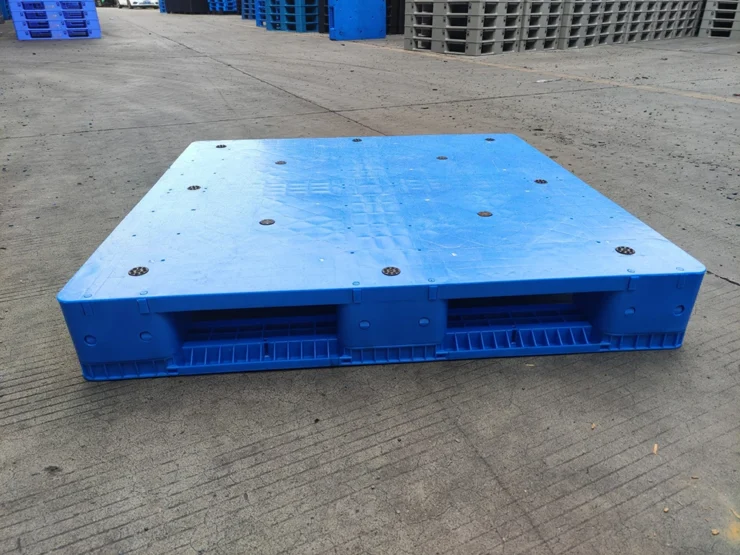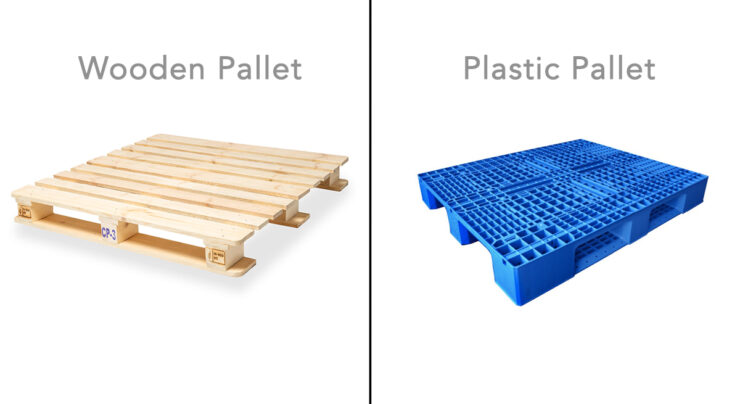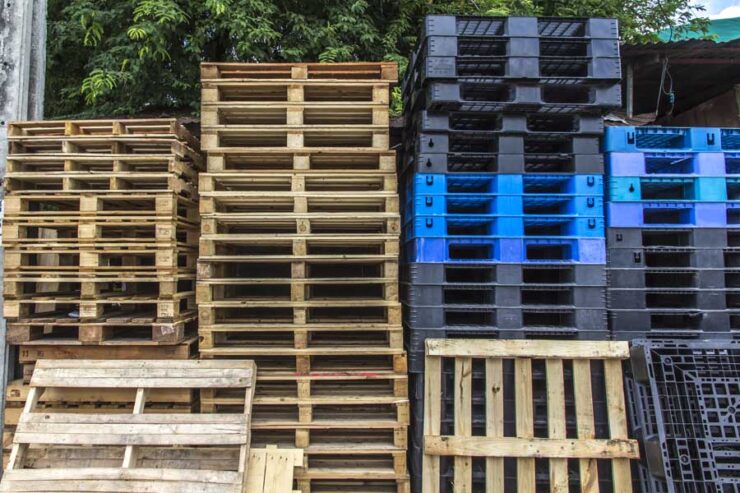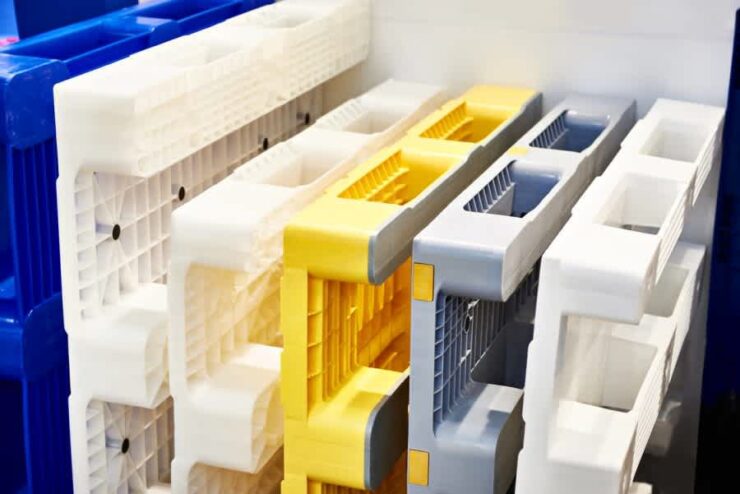Are you trying to decide which type of pallet is best for your business? If so, you’ve come to the right place. We’ll be discussing why plastic pallets are a better choice than their wooden counterparts — and hopefully give you all the tools necessary to make an informed decision. Let’s dive in!
Advantages of Plastic Pallets

Plastic pallets are quickly becoming the material of choice for industrial, commercial and retail use due to their superior advantages over more traditional wooden pallets. Here are some reasons to consider using them for your next shipping or storage project:
Durability:
They are much more durable than their wooden counterparts. Not only are they stronger, but they are also immune to pests, weather, and water damage due to their synthetic construction that is designed to be long-lasting.
Lightweight:
Despite being a strong material compared to wood, plastic still weighs significantly less per cubic foot — making it easier and safer for workers to move around the warehouse or loading dock.
Cleanliness:
Unlike wood which can split or splinter, plastic is easy on employees’ hands while protecting shipments from contamination and cross contamination between substances like food products and industrial chemicals — allowing you total confidence in your packaging process.
Greener Option:
Plastic is a recyclable material which makes it much easier on the environment than other packaging materials like Styrofoam which usually ends up as pollution in landfills or waterways. Additionally, because they do not require chemicals for treatment like woods do, you can trust that your shipments won’t contain any harmful agents that can affect its contents during transit either!
Cost Comparison

When undertaking a cost comparison between them, it is important to consider the entire cost of ownership over the usage span of the pallet. They may generally have a higher initial investment than wood, but they tend to last much longer. Wooden ones typically have a serviceable life of 1-2 years while plastic pallets can remain in service for up to 10 years. The long lifespan means that plastic pallets will save on labor costs associated with repairs and replacements, as well as any potential lost product resulting from damaged or missing load components due to poor material handling practices.
In addition, they are often reusable, meaning they eliminate any disposal fees associated with discarded wood pallets that are taken out of service due to damages or normal wear and tear concerns. When recycled correctly at their end of life, many types of plastic can be reprocessed into more useful products such as new flooring material or again into more replacement plastic products like new deck boards for the same used plastic pallet cores. This ensures that even after its useful lifespan is over; the use of it is still providing value in one way or another which further brings down the total overall cost benefits versus wood options that tend to absorb only limited reuse before their demise.
Durability Comparison

When it comes to materials used for pallets, two of the most popular options are plastic and wood. Both have their advantages and disadvantages but it is important to understand how they compare from a durability standpoint.
They are usually more durable than wood due to the way they are constructed. They are made from strong, durable polyethylene material that does not break down or corrode easily. The material can take a large amount of pressure, making them a great choice for carrying heavy loads. Additionally, plastic pallets can hold up well against water and certain chemicals which gives them an advantage when compared to wood.
Wood, on the other hand, is not as strong as plastic and can be easily damaged by water or extreme temperature changes. This makes wooden pallets less suitable for long-term storage or transportation in harsh elements. Additionally, wooden pieces may splinter if handled improperly which increases chances of injury during handling.
Safety Considerations

Safety is a top priority for companies when it comes to storing and transporting products. The type of pallet that is used can have a direct impact on how safely a company is able to move their products, as well as the degree of protection provided for any employees who come in contact with the shipping materials. They offer superior safety in comparison to wooden pallets, making them an ideal choice for many companies.
They are fire-safe and require no fumigation treatment, unlike wooden pallets which need treatments with hazardous chemicals like methyl bromide and potentially dangerous ingredients such as aluminum silicate, sodium monofluorophosphate, ammonium polyphosphates or OIT/DOT mixtures. When subjected to extreme temperatures, wood pallets can emit fumes which can be hazardous to human health. On the other hand, plastic pallets are immune to such issues and will not produce toxic or flammable vapors when exposed to fire or high temperatures.
Additionally, they are significantly less likely than wood ones to contain splinters and sharp edges that may cause harm. As plastic is an incredibly durable material and does not warp over time from intense heat or cold conditions, these types of danger zones within the product experience less wear due to normal use than wooden options would. While both materials must be handled carefully for optimal safety performance any accidents with plastic materials result in much less damage than timber-related incidents could cause.
Conclusion
After looking at the facts and advantages offered by plastic pallets, it’s clear that they offer a more secure, convenient and cost-effective option for your transportation and warehousing needs. Not only can you rest assured that your products will be safer during shipping, but you’ll also have an easier time storing them in the warehouse due to their cleanliness and durability.
Between their sanitation characteristics, their versatility, and their long-term cost savings, plastic pallets are a great choice to transport goods of any size or shape. For those reasons and more, it’s important to consider the advantages of using plastic pallets over traditional wooden ones when making transportation decisions.

